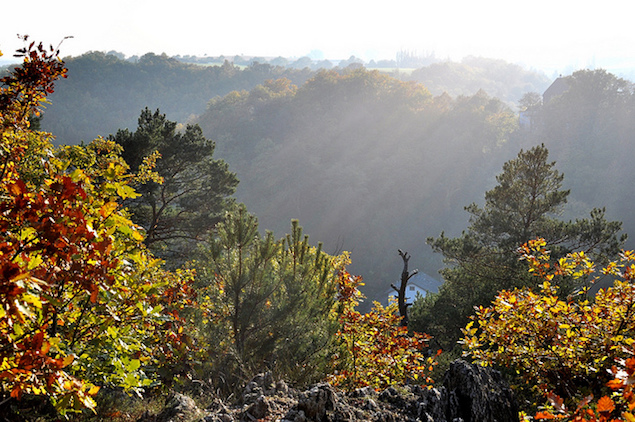Calm • Perspective
The Lessons of Nature
Nature is valuable not only for itself; it is also to be revered as the single most persuasive and redemptive work of philosophy.
Nature corrects our erroneous – and ultimately very painful – sense that we are essentially free. The idea that we have the freedom to fashion our own destinies as we please has become central to our contemporary world-view: we are encouraged to imagine that we can, with time, create exactly the lives we desire, around our relationships, our work and our existence more generally. This hopeful scenario has been the source of extraordinary, unnecessary suffering.
There are many things we want desperately to avoid, which we will spend huge parts of our lives worrying about and which we will then bitterly resent when they force themselves upon us nevertheless.
The idea of inevitability is central to the natural world: the deciduous tree has to shed it leaves when the temperature dips in autumn; the river must erode its banks, the cold front will deposit its rain; the tide has to rise and fall. The laws of nature are governed by forces nobody chose, no one can resist and which brook no exception.
When we contemplate nature (a forest in the autumn for example, or the reproductive cycle of a salmon), we’re witnessing rules that in their broad irresistible structure apply to ourselves as well. We too must mature, seek to reproduce, age, fall ill and die. We face a litany of other burdens too: we will never be fully understood by others; we’ll always be burdened by primordial anxiety; we’ll never fully know what it is like to be someone else; we will invariably fantasise about more than we can ever have; we’ll realise we cannot – in key ways – be who we want to be.
What we most fear will happen irrespective of our wishes. But when we see this frustration as a law of nature, we drain it of some of its sting and bitterness. We recognise that limitations are not in any way unique to us. In awesome, majestic scenes (the life cycle of an elephant; the eruption of volcano), nature moves us away from our habitual tendency to personalise and rail against our suffering.
A central task of culture should be to remind us that the laws of nature apply to us as well as to trees, clouds and cliff faces. Our goal is to get clearer about where our own tantalisingly powerful yet always limited agency stops – and where we will be left with no option but to bow to forces infinitely greater than our own.
See also: The Wisdom of Animals, On the Sublime



























